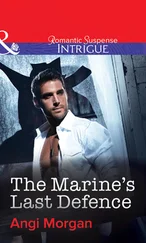On his final presidential visit to Moscow a year later Clinton found the wound was still festering. Putin presented himself as a man who would no longer allow Russia to be ignored or pushed around. For two days he hammered home his criticism of America’s plans for a unilateral missile defence shield. Then on the final morning, as they held a farewell meeting in the Kremlin, Putin issued a dark threat that if America went ahead with its plans, Russia’s response would be ‘appropriate’ and ‘maybe quite unexpected, probably asymmetrical’ – in other words, the Russians would not try to match the sophisticated and costly US system but would take means to render it ineffective. That could mean anything from building huge numbers of nuclear missiles to overwhelm the proposed shield, to destroying the American installations as soon as they were set up.
Clinton heard out Putin’s homily, then turned to his aide, Strobe Talbott, and murmured, ‘I guess that guy thought I didn’t get it the first time. Either he’s dense or thinks I am. Anyway, let’s get this thing over with so we can go see Ol’ Boris.’ 3
With relief, the Americans then drove out of the Kremlin to bid farewell to Clinton’s friend, ex-President Yeltsin, now living in retirement in his country dacha. There was a surprise waiting for him. By the time he got there Putin had called Yeltsin and asked him to rub in the message even harder. Russia, he said, would not put up with any American policy that threatened Russian security. When the tirade was over, Clinton steered the conversation back to his own concerns about Russia’s future. His parting words, as related by his adviser Strobe Talbott, were quite remarkable – and revealing of the American view of Russia after the fall of communism.
‘Boris,’ he said, ‘you’ve got democracy in your heart, you’ve got the trust of the people in your bones, you’ve got the fire in your belly of a real democrat and a real reformer. I’m not sure Putin has that. You’ll have to keep an eye on him and use your influence to make sure that he stays on the right path. Putin needs you, Boris. Russia needs you… You changed Russia. Russia was lucky to have you. The world was lucky you were where you were. I was lucky to have you. We did a lot of stuff together, you and I… We did some good things. They’ll last. It took guts on your part. A lot of that stuff was harder for you than it was for me. I know that.’
As he left Yeltsin’s dacha, Clinton turned to Talbott: ‘That may be the last time I see Ol’ Boris. I think we’re going to miss him.’
Clinton’s mawkish words clearly suggest he thought that under Yeltsin things had gone very well in Russia and Russia was where America wanted it to be. In fact, things were not going well, and Russia did not want just to go wherever America wanted it to be. In reality, what America was going to miss was a Russian leader who was compliant to the point of submissiveness. Putin would be anything but that.
The West’s handling of post-Soviet Russia had been just about as insensitive as it could have been. With Western corporations salivating at the prospect of a huge new market, Harvard economists hired by the Russian government urged it to introduce unrestrained capitalism at breakneck speed, with scant regard for the sensitivities of – and consequences for – the Russian people. Their ideas were eagerly taken up by Yeltsin’s own reformers, led by the economist Yegor Gaidar, who had been inspired by the ‘shock therapy’ that had transformed countries like Poland a couple of years earlier. Yeltsin had appointed him to ‘give the people economic freedom, and remove all barriers to the freedom of enterprises and entrepreneurship’. Within a few years millions of Russians were reduced to extreme poverty, while a handful of go-getters and former communist officials turned themselves into billionaire oligarchs, snapping up the country’s resources for a fraction of their value.
Undoubtedly, under Yeltsin Russians enjoyed Freedom, with a great neon-lit, capital F, such as they had never known in their nation’s thousand-year history. The 1990s were riotous years. They saw an explosion of energies that had been pent up for 70 years of communism. Any Russian with a bit of cash and enterprise could set up a small business, if only a little stall selling Snickers bars and vodka. Russians were free to travel abroad, to read whatever they wished, say what they liked and demonstrate against their leaders. There were competitive elections and political parties. National television stations broadcast biting satire and no-holds-barred critiques of Kremlin policies. New private banks sponsored ballets and concerts. Shops quickly filled up with consumer goods and foodstuffs that Soviet citizens had only glimpsed in foreign films. After the dark decades of totalitarian rule, people now felt unafraid. There was optimism and hope. Certainly that’s how Russia looked to most Western observers. Evidently, it’s how Bill Clinton saw things.
And yet, when I look back at my notebooks and dispatches from the time, I am reminded that most Russians had a very different impression. My reports for the BBC chronicled a decade of shame and humiliation.
Yeltsin’s Russia was a country that seemed to be run by thugs. You saw them barrelling down the highways in their cars with darkened windows, or ordering thousand-dollar bottles of wine in the best restaurants and snarling contemptuously at the waitresses, or shopping in horrendously overpriced boutiques, and occasionally gunning each other down in broad daylight. Contract killings were commonplace, as Russia’s mafia-style gangs carved up territories and businesses.
The BBC’s offices were located in a hotel and business centre part-owned by an American, Paul Tatum. After a dispute with his Chechen business partner, Tatum was riddled with bullets fired from a Kalashnikov rifle – at 5pm as he walked into a metro station near the hotel. His killer was never found. On another occasion I found myself in a traffic jam, and as I slowly edged forward noticed that a little hold-up was going on at the side of the road – again in broad daylight. Several men were pointing their guns at the head of some poor guy lying on the ground. On yet another ordinary day in Moscow a restaurant was raided, and we all threw ourselves to the floor while arrests were made. To get into my local supermarket, you had to walk past guards wearing fatigues and cradling AK-47s. All the early new capitalism was accompanied by violence and threats: whether you managed a five-star hotel or sold souvenirs from a trestle table on the Arbat, you paid protection money to one mafia gang or another.
On the outskirts of the major cities, especially Moscow, the so-called ‘New Russians’ built mansions with swimming pools, wine cellars and fashionable turrets, all hidden from view behind 15-foot fences. They represented a tiny proportion of the population. Millions meanwhile were impoverished by the economic reforms that started in 1992. The sudden liberalisation of prices led to soaring inflation. Ordinary Russians lined the pavements selling off their belongings. The very centre of Moscow became a huge flea-market. I vividly remember one man in particular – a middle-aged scientist with a PhD – selling old rusting padlocks and other bric-a-brac.
Other scientists emigrated in search of work that would give them a decent wage, many of them taking Russia’s strategic knowledge and secrets with them, leaving their country devoid of its best brains just when it needed them.
Railway stations filled with beggars and homeless people. The Kursky vokzal – Moscow’s main station for southern destinations – became a Dickensian dosshouse full of pickpockets and sick people. Amputees from the first Chechen war (1994– 96) began to clump around metro carriages asking for alms.
Читать дальше
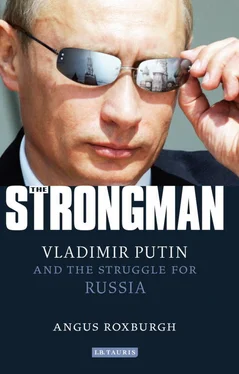
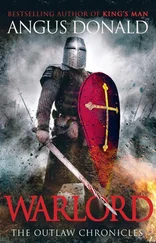
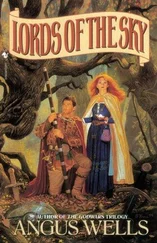


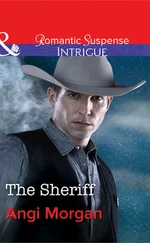
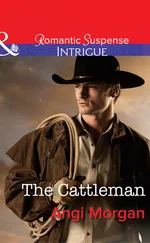

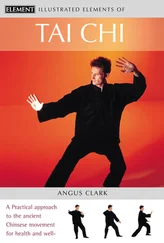
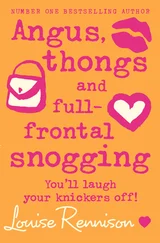
![Brian Thompson - A Monkey Among Crocodiles - The Life, Loves and Lawsuits of Mrs Georgina Weldon – a disastrous Victorian [Text only]](/books/704922/brian-thompson-a-monkey-among-crocodiles-the-life-thumb.webp)
